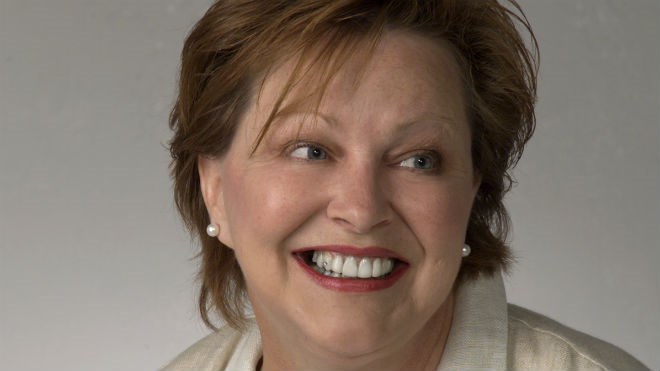It was a policy credited to the late Diane Marleau, the Chretien-era cabinet minister who started her political life as a regional councillor in the early 1980s.
As chair of the finance committee from 1980-1985, she championed a policy of pay-as-you go, in which municipal assets would be funded and maintained by tax revenue, grants or user fees. In other words, no more borrowing.
It was a time when interest rates in the U.S. were as high as 20 per cent, and nearly reached 21 per cent in Canada. Governments who routinely ran up big debts were forced to pay skyrocketing interest to fund their loans. The region, too, had been hit hard by interest rates, both in the cost of servicing its debts, and the disappearance of federal and provincial funding as upper levels of government struggled to control their budgets.
More than 30 years later, with interest rates at historic lows, Mayor Brian Bigger said Tuesday that it's time to end that policy.
"We've been ultraconservative as a municipality for many, many years," Bigger said Tuesday, after the finance committee received a presentation on debt financing.
He said the policy came into place during the 1980s in the midst of two recessions and high interest rates and “it hasn't changed since."
With an $80 million to $100 million arena/events centre on the docket, as well as $5 million for their share of the Place des arts — and plans for the Synergy Centre and a new art gallery/library — Bigger said there are more demands for funds than taxpayers can be expected to bear.
"I look at other organizations within Greater Sudbury, like Laurentian University, and they've been investing in their campus, and working towards opportunities for more research and innovation," he said.
"I think there's an opportunity for us to make the investments that we're looking at and still manage the money of the citizens well. We wouldn't overly burden us with debt, but really seize the opportunities that we have at this point and time with the low interest rates."
Those opportunities include money from the federal government, which is rolling out the second phase of infrastructure funds and are looking for shovel-ready projects.
Ward 11 Coun. Lynne Reynolds, who called for Tuesday's meeting on debt financing, said the policy has long outlived its usefulness and is now holding the city back.
"This is something we've been very hesitant to do for many decades," Reynolds said. "Our past attitude of good enough has plainly not been good enough.
"It's left our city with crumbling infrastructure, a city that is in need of new, modern facilities. We should be positioning ourselves as the great northern city of Ontario."
Similar to taking a mortgage on a house, Reynolds said rather being a risky move, borrowing to build ensures the people who use the asset are the ones who pay for it.
"There will be those out there who will gasp at the idea of borrowing today for development tomorrow," she said. "What would our city look like if everyone had to battle inflation to save enough to pay cash for their homes in which they raise their families, for their university education, for their vehicles and for their business growth?
"Should today's taxpayers ... including our growing aging population, shoulder the continued cost of infrastructure that is required right now, never having seen the value of their many years of taxes, instead of sharing this burden with users of the future?"
Reynolds said there are private investors willing to spend money in Sudbury, but only when the city is willing to invest, as well.
"As a city, we need to set that pace for development and not lag behind it, as we often have ... We need to set the pace, not timidly, but boldly," she said. "When inflation is higher than the cost of borrowing, as we saw tonight, does it make sense to save, never being able to quite catch up with rising inflation for projects that have been on the books for many, many years? Some even for decades.
"I believe this is the council, this one right here, that will decide what that future looks like. Whether we keep limping along, or whether we set this city on a well considered, well-planned path of growth, prosperity and quality of life for everyone of our citizens."
Bigger said councillors will review their long-term financial plan next month and a new debt policy could be ready soon after that.
"Absolutely, the events centre is one project that certainly would qualify for debt issuance," he said, when asked whether a new arena could be part of a debt-financing plan.
With an RFP for the new arena likely to be ready in late June, he said the new debt policy, if approved by council, should be in place when the city receives actual proposals to build a new rink.
"It's all coming together roughly at the same time, within the next three months or so,” Bigger said. “I see it as a fairly methodical process we're working through. We're not rushing through a process. We're receiving the information we need to work through some important decisions."
